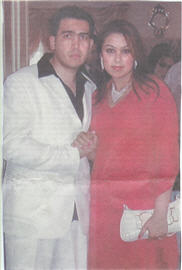Boreal
Little Mosque On The Prairie
The Open House
9/11, Marriage and Honour Killings
![]() Little Mosque on
the Prairie is proof that bad taste knows no ethnical, cultural, religious or linguistic barrier.
Little Mosque on
the Prairie is proof that bad taste knows no ethnical, cultural, religious or linguistic barrier.
Two jokes in this last episode were in particularly bad taste. The first, the complaint by the character Baber, after the mosque has suffered some water damage from the intervention of the fire department because of a possible electrical fire, that the “infidels have tried to blow us up. This is our September 11th.”
Twenty-four of the 2,973 who died in the attacks of September 11 were Canadians. All suffered a horrible death only to become fodder for a few laughs, is tasteless in the extreme. The CBC should be ashamed.
Another joke in poor taste, but perhaps not on the scale of the 9/11 reference, is Reverend Duncan making fun of two of his parishioners who happen to walk by as water-damaged carpets are brought outside and are puzzled by all the activity. You know the one about taking the body out the back.
In this episode Little Mosque does flirt with the truth, then quickly reverts back to form. It is the scene where the character Rayyan explains to the caricature of the clueless dumb blonde why she is wearing a veil. Wearing the veil she said is “about modesty … hair is part of your sexuality.”
Yes it is, and Nabila Ben Youssef would agree with her.
Nabila is a French-speaking Muslim comedian from Tunisia who now makes Montreal her home. In a serious interview on the French network of the CBC (Radio-Canada) she explained that women were expected to cover their head because the Prophet Muhammad believed that the sight of a single woman’s hair would get men thinking about the woman’s pubic hair and one thing would lead to another.
During this conversation the caricature of the dumb blonde asks the obviously long-suffering and forbearing Rayyan if she shows her hair to her boyfriend.
Of course not, her boyfriend will not see it until they are married, in the meantime she is window-shopping for the right man. In Islam, it is the father, an older brother or an uncle who does the shopping and the "right man" can only be a Muslim.
2:221 Do not marry unbelieving women (polytheists) until they believe. A believing slave-girl is certainly better than an unbelieving woman, even if the latter pleases you. And do not give your women (believing women) in marriage to polytheists until they believe. A believing slave is certainly better than a polytheist even if the latter pleases you. Those (the polytheists) call to the Fire and Allah calls to Paradise and Forgiveness by His Leave; and He makes clear His Revelations to mankind so that they may be mindful.
What I often refer to as the Little Mosque Lie, for obvious reasons, did not do anyone any favours by pretending that daughters in a traditional Muslim household are allowed to shop around for a husband, whether it be among relatives or eligible males within the community of believers.
In a traditional Muslim household, daughters have little or no say as to whom they will marry. Unlike in most religions, a marriage in Islam is not a sacrament but a contract. A contract usually between members of the same clan, meaning you are all relatives, all offsprings of the same father a few generations removed.
The marriage is usually an arranged affair and, not unlike arranged marriages of the Middle and Dark Ages, the primary consideration is what benefits in wealth and influence will accrue to the contracting parties i.e. the families of the bride and groom.
A young woman who flaunts this tribal tradition risks her life, as was the case of the young couple pictured here who were shot dead outside a shopping centre in Ottawa in September (she died at the scene, her fiancé later in hospital).
 OTTAWA - A man who killed his sister
and her fiance because they brought dishonour on his family was sentenced to life in prison yesterday with no chance of parole for 25 years.
OTTAWA - A man who killed his sister
and her fiance because they brought dishonour on his family was sentenced to life in prison yesterday with no chance of parole for 25 years.
Hasibullah Sadiqi, 23, said nothing after a jury of seven men and five women found him guilty of two counts of first-degree murder in the Sept. 19, 2006 gun slayings of his sister, Khatera Sadiqi, 20, and her fiance, Feroz Mangal, 23.
The couple were shot to death while they sat in Khatera's car in the Elmvale Mall parking lot just before 1 a.m.
Ottawa Sun, May 31, 2009
Bernard Payeur, February 4, 2007